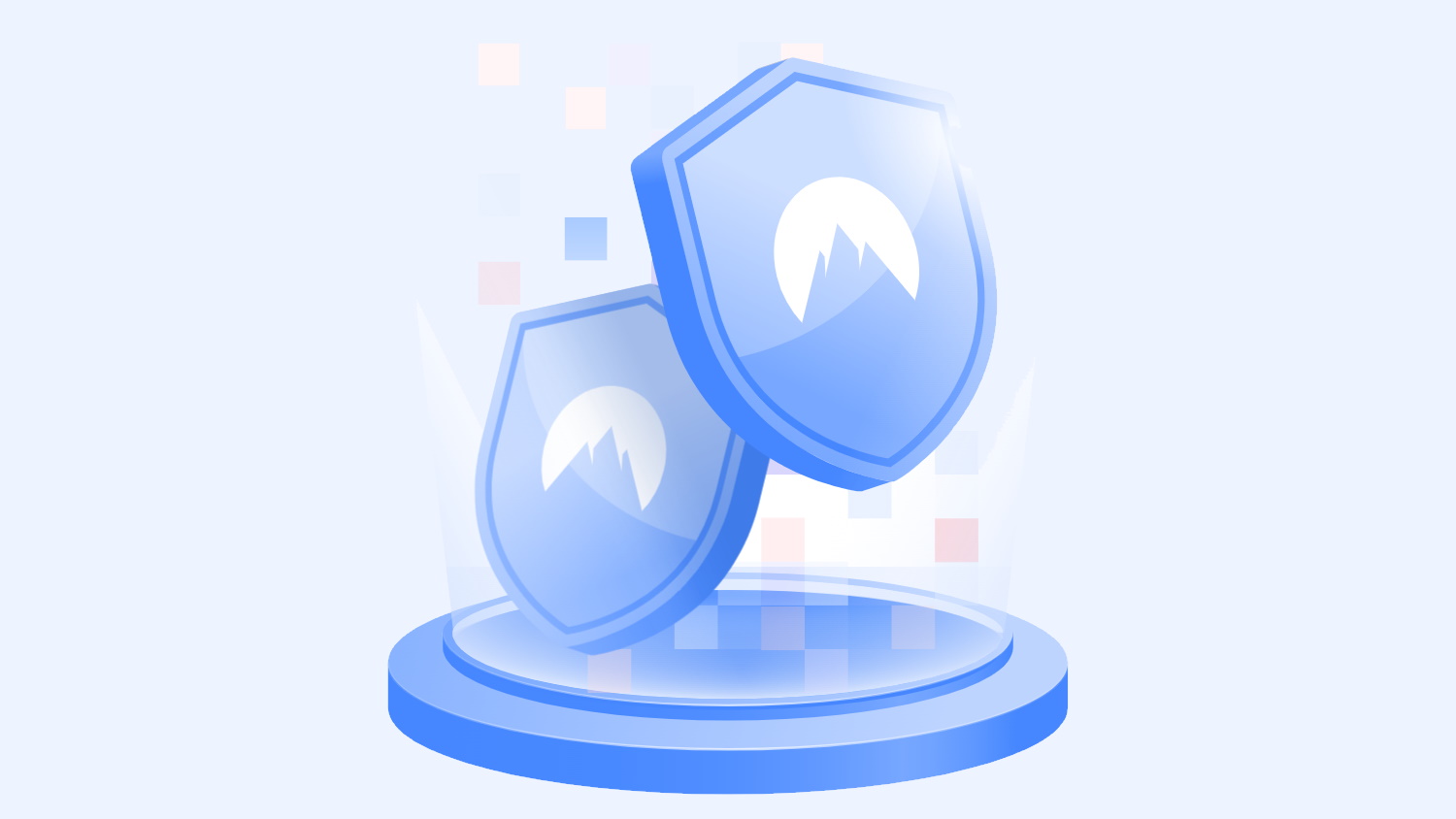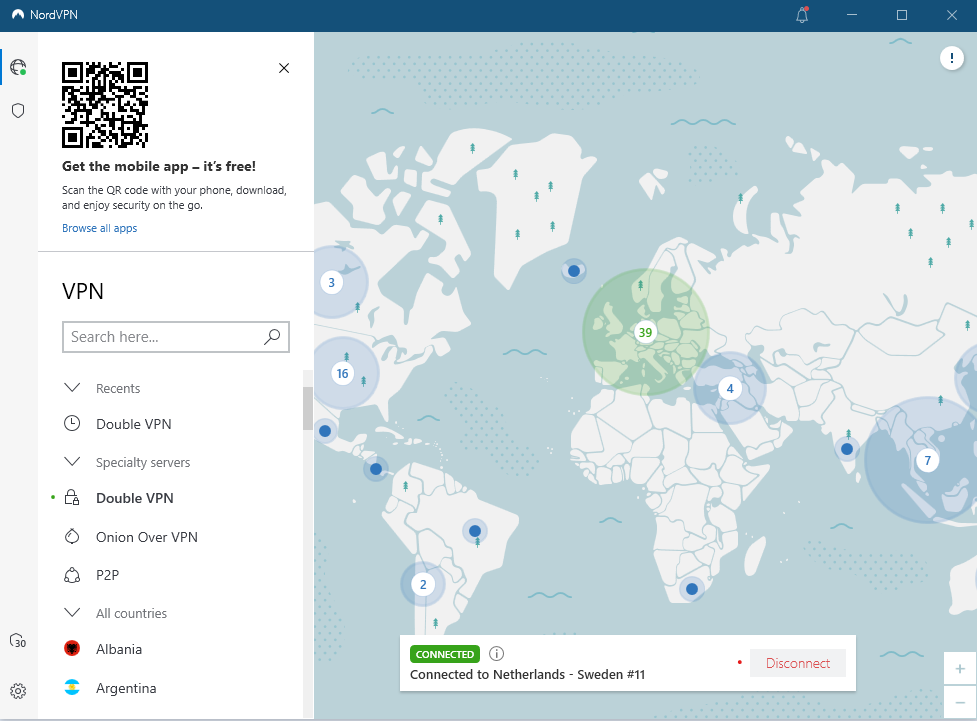What is NordVPN's Double VPN and when should you use it?
Protect your online activities with NordVPN's extra privacy layer

Sign up for breaking news, reviews, opinion, top tech deals, and more.
You are now subscribed
Your newsletter sign-up was successful
Visit just about any VPN provider's website and you'll read how its industrial-strength encryption protects you from even the most expert, highly-equipped, nation state level of snooping.
And yet and a handful of other providers offer a feature usually called multihop VPN, which they say can make you even safer.
The core idea is that your traffic is routed through two VPNs servers instead of one. You connect to London, maybe; your traffic gets re-routed to New York, then it's decrypted and sent on to its destination. This hides your identity behind an extra server and gives you another layer of encryption.
One of the best VPN providers in the world, NordVPN calls its version of multihop 'Double VPN. In this article we'll explain when Double VPN is useful, when it isn't, and how you can set up and use the feature.
When a regular VPN isn't enough
Hit Connect on a standard VPN app and your traffic is encrypted, routed to a VPN server, decrypted and sent on to its destination.
This technology seeks to protect you from local snoopers, monitoring public Wi-Fi for unencrypted traffic with data they can steal. And it also ensures that hotspot operators and your ISP can't monitor or log any of your browsing history.
The problem is your VPN server still sees all your internet activities. If that server is compromised, an attacker could potentially view your incoming traffic, and even if it's encrypted, it may still be possible to link this back to you.
A snooper could run a traffic correlation or timing attack, for instance, where it looks at patterns in the network flow to match incoming encrypted connections to outgoing decrypted traffic, removing your VPN's protection. Just having the incoming IP address might be useful in identifying you, for instance if it's linked to your home ISP account.
Is this likely to happen? Probably not, and it's certainly way more complex than most attacks. Is it possible, though? Yes, and this is the concern NordVPN has designed Double VPN to solve.

What are the benefits of Double VPN?
Switch to Double VPN and your traffic will now be encrypted twice. That means an extra layer of protection which immediately makes it more difficult for anyone to decipher your data.
Your traffic is sent to the first VPN server, where the outer layer of encryption gets removed. It's then sent to the second VPN server, where the final layer of encryption gets removed, and your traffic is then passed on to your destination.
A little like Tor (short for The Onion Router), this separation of knowledge helps to protect your privacy. The first server knows who you are, but not which website you're accessing: it only has the IP address of the second server. And that second server knows where you're going, but not who you are: it only has the originating IP of the first server, which will be shared by many other NordVPN customers.
This can't absolutely guarantee your safety, but it does make it very difficult for an attacker to monitor what you're doing online, or link you to any specific internet action.
What are the disadvantages of using Double VPN?
The big issue with any kind of multihop feature is it comes with an inevitable performance hit, and Double VPN is no different.
Adding a second layer of encryption and decryption takes time. And bouncing all your traffic through an extra server is almost certain to slow you down. That said, unless you're using your VPN for a speed-reliant use such as gaming or 4K streaming, you're unlikely to see to much difference. Plus, NordVPN generally features prominently on our regular rundown of the fastest VPNs.
Enabling Double VPN often limits your choice of location. You might find your VPN only allows you to use a second server in another country, for instance: maybe you're in the UK, but your second server must be in France, perhaps causing problems when you try to access geo-blocked websites.
Should you use Double VPN?
If you're using a VPN to protect yourself on public Wi-Fi, perhaps to hide your browsing history from your ISP or hotspot operators, a single VPN connection is likely to be enough. Someone snooping on the Wi-Fi action at your local coffeeshop isn't going to see your encrypted connection and think, 'hmm, I wonder if I can hack the VPN server' - life's too short. They'll just move on and look for someone who isn't as well protected.
Sometimes, though, the need to maximize privacy might trump everything else. If you're a NordVPN-using activist in a country with an oppressive government, for instance, or a journalist protecting your sources, turning on Double VPN does bring genuine privacy pluses which you really, really need.
If you'd like extra anonymity and aren't concerned about any speed penalty, you could try turning on the feature, too. It won't do any harm, and if you notice any drop in performance, just turn it off and you'll be back to normal.

How do I use Double VPN with NordVPN?
- Launch your NordVPN app
- Go to the 'Speciality Servers' drop down menu
- Click on 'Double VPN' to instantly connect to the fastest servers
- OR click on the three dots to select the country for each server
It's worth noting that NordVPN recommends you switch to OpenVPN UDP or TCP if Double VPN isn't instantly available on your chosen protocol.
What other providers include multihop VPN?
Multihop VPN isn't widely available, but it is supported by a handful of providers: Surfshark, Hide.me, Windscribe, Proton VPN, Astrill VPN (with its premium VIP plan) and a few others.
It's normally an option you'll find somewhere close to the location list. Surfshark has a Multihop tab alongside others for Favorites, Locations and Static IPs, for instance.
Can't see it? Multihop VPN might not be available on all platforms or using all protocols. Plus, you may get a very limited choice of locations, depending on your provider. When we tried Surfshark's Windows app, for example, there were 14 standard choices (e.g. India > United Kingdom, USA > Netherlands, Germany > United Kingdom). But that's no different to the restrictions seen with Double VPN on Nord - in the UK, for instance, the provider only allowed us to connect using the UK for server #1, and France for server #2.
Hide.me wins out for flexibility, though. Choose MultiHop, +MultiHop in the app and you're able to choose whatever entry and exit server you like.
Sign up to the TechRadar Pro newsletter to get all the top news, opinion, features and guidance your business needs to succeed!

Mike is a lead security reviewer at Future, where he stress-tests VPNs, antivirus and more to find out which services are sure to keep you safe, and which are best avoided. Mike began his career as a lead software developer in the engineering world, where his creations were used by big-name companies from Rolls Royce to British Nuclear Fuels and British Aerospace. The early PC viruses caught Mike's attention, and he developed an interest in analyzing malware, and learning the low-level technical details of how Windows and network security work under the hood.